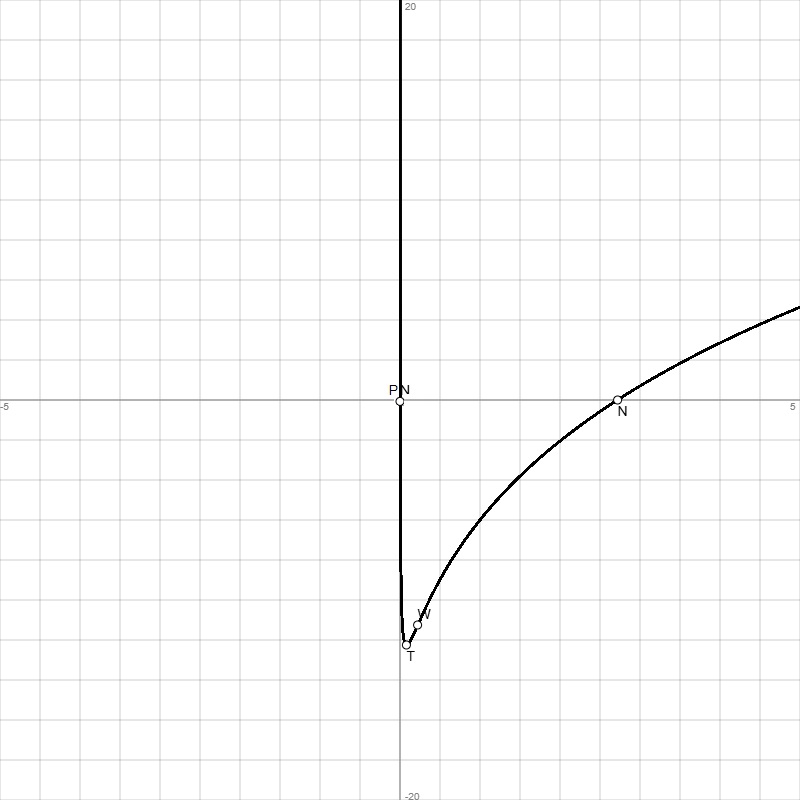
www.michael-buhlmann.de
Funktion: f(x) = ln2(x)+5·ln(x)-6, Df = (0; +∞), Wf = [-12.25; +∞), reelle Funktion, x -> 0: f(x) -> +∞, x -> +∞: f(x) -> +∞ ->
| Wertetabelle: | |||||
| x | f(x) | f'(x) | f''(x) | f'''(x) | Besondere Kurvenpunkte |
| 0 | Infinity | Infinity | Infinity | Infinity | Senkrechte Asymptote/Pol x = 0 |
| 0.0025 | 0 | -2953.32 | 1580212.21 | -1291669207.07 | Nullstelle N(0.0025|0) |
| 0.082 | -12.25 | -0.03 | 297.75 | -10841.12 | Tiefpunkt T(0.08|-12.25) |
| 0.223 | -11.2512 | 8.96 | 0.02 | -180.16 | Wendepunkt W(0.22|-11.25) |
| 0.5 | -8.9853 | 7.23 | -6.45 | 9.82 | |
| 1 | -6 | 5 | -3 | 4 | |
| 1.5 | -3.8083 | 3.87 | -1.69 | 1.67 | |
| 2 | -2.0538 | 3.19 | -1.1 | 0.85 | |
| 2.5 | -0.579 | 2.73 | -0.77 | 0.49 | |
| 2.7182 | 0 | 2.58 | -0.68 | 0.4 | Nullstelle N(2.72|0) |
| 3 | 0.7 | 2.4 | -0.58 | 0.31 | |
| 3.5 | 1.8332 | 2.14 | -0.45 | 0.21 | |
| 4 | 2.8533 | 1.94 | -0.36 | 0.15 | |
| 4.5 | 3.7826 | 1.78 | -0.3 | 0.11 | |
| 5 | 4.6375 | 1.64 | -0.25 | 0.08 | |
| Graph: | |||||
 | |||||
Abkürzungen: Df = (maximaler) Definitionsbereich, f(x) = Funktion, f'(x) = 1. Ableitung, f''(x) = 2. Ableitung, f'''(x) = 3. Ableitung, H = Hochpunkt, L = Lücke, N = Nullstelle, P = Polstelle, R = reelle Zahlen, S = Sprungstelle, T = Tiefpunkt, W = Wendepunkt, WS = Sattelpunkt, Wf = Wertebereich, {.} = ein-/mehrelementige Menge, [.; .] = abgeschlossenes Intervall, (.; .) = offenes Intervall, [.; .), (.; .] = halboffenes Intervall, ∞ = unendlich.
Bearbeiter: Michael Buhlmann